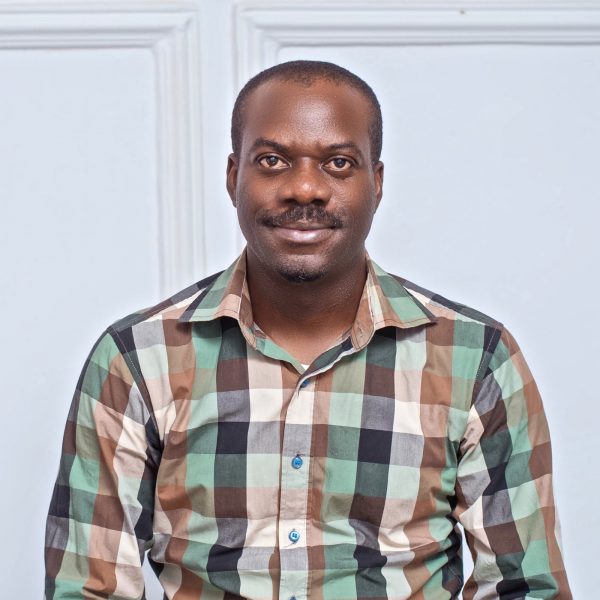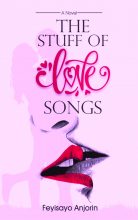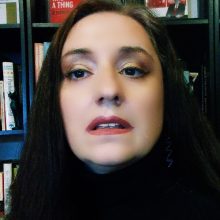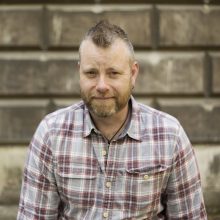The Stuff of Love Songs by Feyisayo Anjorin
What led you into writing?
I read a lot. I started with a lot of fiction in my preteen years because my Dad bought me a lot of books; so I explore in my imagination. Later, in my varsity years I read a lot of non-fiction; so there has always been a desire to respond or react to ideas; or to stretch my imagination. I didn’t take writing seriously until my second year in the university when a girl I wanted to date said, “No” to my proposition. I was disappointed. Writing was my means of escape.
How does a typical day look?
A typical day starts with prayers and meditation and exercise; then I would face the project I’ve been working on; I do look up on social media to see what the next global or local drama is. I read everyday, I write everyday too. In the evenings I watch TV and play with my daughter.
In what way do your characters test your abilities?
“The Stuff of Love Songs” is my third work of fiction, and it is a bit closer to “The Night My Dead Girlfriend Called” in terms of themes and subject. In the 2nd and 3rd book I had to dig into my past and the experience of people in my circle, the people I’m familiar with who have been in love and who have had their fair share of the storms that could rock relationship especially for lovers who are very much in it heart and soul. For “Kasali’s Africa” I had to write about war and dictators and polygamists, so I used my experience as someone who has lived under dictatorship and I researched the Liberian civil war and used my grandfather who was a polygamist as a reference. The characters test my abilities in the way that I borrow here and there from real life and from imagination and from other fictional characters, to create fictional characters that are rich in conceptual and emotional relevance. In all instances I have had to draw on my experience as an actor and situate myself mentally in the circumstances and worldview of my characters.
How do you inspire and motivate yourself?
I think about the future. What would be my feeling if I do not express my thoughts and ideas in the written form? I’m inspired by the good books I’ve read and the joy that comes from interacting with ideas on the pages, I’m motivated by the fact that someone would read my work and have a feeling.
What lasting effects have your favourite authors had on your writing and style?
Reading Philip K Dick made me realize that I could write about the interaction between real life and the technology of the future; from Alice Munro I learned that writing could be simple without being simplistic. I learned from Chinua Achebe and Wole Soyinka that African societies has as much right to authenticity as every other society, so I write with the mind that the reader knows what I’m talking about and if he or she doesn’t, it would lead to the quest for answers.
What’s your set up?
I have my laptop, a note pad and a dictionary on my table. I have three spare rooms but interestingly I would rather write in my sitting room, so my most productive times are when my daughter is not back from school, and late at night when she’s already asleep. When I sit there I typically stay for hours which always seem like minutes.
What repeating themes do you find yourself pulling into your stories?
The issue of love and jealousy has come up in all my three books; in the first and second work I’ve explored the conflict between old ways of doing things and innovation or new ways. I see that I always have characters who would have to question love and their lover’s faulty view of love, I explore sincerity versus insincerity too. I also explore security versus insecurity.
How do you wind down?
I go to the cinemas or sometimes I go hiking. I love hilltops and watersides. Sometimes I just play my favourite love songs and sing along. But my absolute best is sitting down for a good movie with my wife and my daughter.
What challenges do you regularly overcome when world-building?
Usually my characters start as vehicles for ideas, for worldviews, for mindsets, for opinions; so I would have to find a way to make them as human as possible. That is the challenge I have all the time, but eventually as I get immersed in the world of the story the humanity comes out, the motivations are clear and relatable. In the end even if the character is a self-righteous prig, an archaic traditionalist, a jealous lover, or an angry feminist, the character is never unreasonable.
What are you reading at the moment?
“The Clothes On their Backs” by Linda Grant.
What is the most useful advice you could give an aspiring author?
Think deeply about your story and then start writing. Starting is the most difficult part, but when you start and by the time you become very familiar with your characters and their life on the pages, it becomes easier to make progress. Then read. Read widely, both fiction and nonfiction. It gives you range as a writer.
Tell us about the book you’re promoting.
I’m promoting a work of Contemporary Romance “The Stuff of Love Songs”. It is the story of lovers whose decision to appear on a Romance TV show brings them face-to-face with issues they have been trying to avoid while their relationship is in its comfort zone. It is the most personal of all my work, because I got so much from personal experience and my views on love in it; even though the characters are neither exactly like me nor my wife.
👋 Hi! I run Author Interviews
As a new writer I found myself itching to contribute to a thriving, creative community, so I made Author Interviews and I've met loads of wonderful people in the process. You can buy my debut fantasy RINGLANDER: THE PATH AND THE WAY from Amazon.





